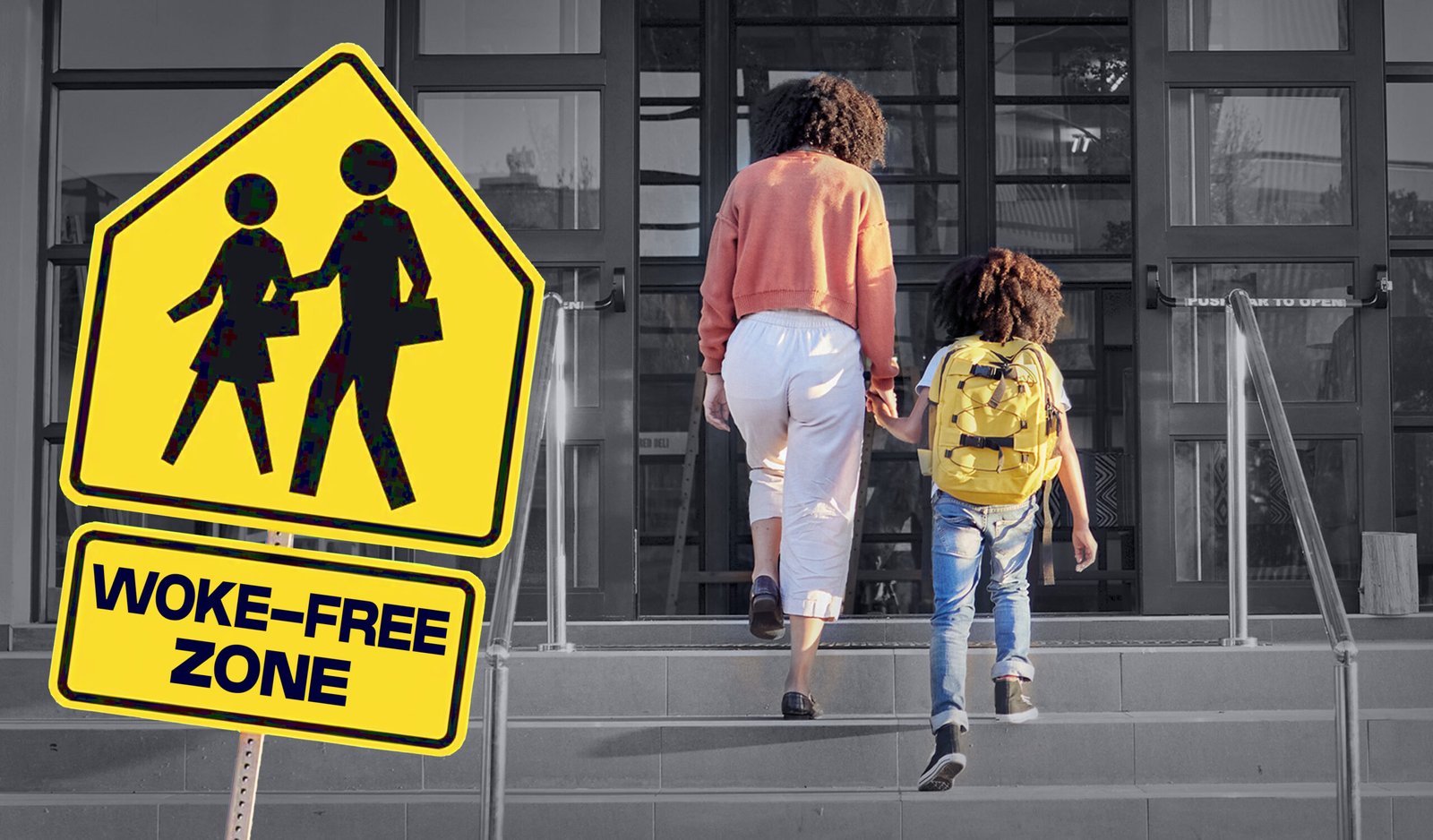As schools across America prepare to start a new academic year, a significant trend is reshaping education. The growing interest in “woke-free” schools is evident. These institutions are gaining popularity among parents concerned about academic rigor and ideological content in mainstream education. This shift is not just about changing classrooms. Instead, it’s about redefining the purpose of education and addressing the broader debate about the values we want to instill in the next generation. Woke-free schools challenge the status quo by prioritizing traditional academics over contemporary social issues, a choice that resonates with many families who feel alienated by the direction of public education.
The Battle Over Woke Education
The concept of woke education, as defined by educators like Altheria Caldera, involves teachers having a critical disposition and willingness to examine root causes of disparities and question why social groups have inequitable lived experiences.
However, critics of this approach argue that it has gone too far, potentially confusing students about gender identity and forcing acceptance of controversial ideas.
The central concern for many parents is whether their children are being educated or indoctrinated. This debate touches on sensitive issues such as gender identity, race, and social justice, making it a highly charged topic that influences how education is approached in schools across the country.
Parents and educators alike are questioning the balance between teaching critical thinking and pushing specific ideological perspectives.
Returning to Academic Fundamentals
Woke-free schools emphasize traditional academic rigor without the influence of political agendas. These schools focus on essential skills and knowledge, ensuring that students receive a well-rounded education rooted in core subjects like math, science, and literacy.

For example, Elon Musk’s Ad Astra, which began in 2014 and now serves children aged three to nine in Bastrop, Texas, is dedicated to promoting critical thinking and problem-solving skills, with a strong emphasis on STEM subjects. The curriculum at Ad Astra shuns traditional subjects like music and sports in favor of a more focused academic approach designed to prepare students for future technological challenges.
Institutions like the University of Chicago are recognized for their commitment to free expression and intellectual diversity, rejecting concepts like “trigger warnings” and “safe spaces” that might limit open discourse.
Meanwhile, Hillsdale College takes an explicitly conservative approach, offering a classical liberal arts curriculum that includes studies in Western civilization and the American founding.
This movement raises important questions about the future of education in our complex society and whether a return to these fundamentals can adequately prepare students for the modern world.
A New Approach to History and Civics
Woke-free schools are tackling the challenge of teaching American history and civics in a way that acknowledges both the nation’s achievements and its flaws. These schools often adopt a colorblind or patriotic approach, rejecting narratives about systemic racism or white privilege that they view as divisive.
The Exodus Institute’s “Young Patriots Academy” seeks to “debunk the ‘woke’ lies” by highlighting positive aspects of American history, such as the role of the Quakers in opposing slavery and the contributions of America’s founding fathers to the principles of liberty and justice.
Woke-free schools strive to present history in a way that promotes a deeper understanding of the complexities of the American experience. They aim to create informed citizens who can appreciate the nation’s values and principles while also recognizing the importance of continuous improvement and reform.
A Turning Point in Educational Resources
On January 31, 2024, Arizona’s Superintendent of Public Instruction Tom Horne partnered with the Prager University Foundation, signaling a significant shift in educational support. PragerU’s content, which includes a wide range of conservative educational materials, is now available on an Education Department website, making these resources more accessible to educators and students alike.
Similar initiatives are taking place in Florida, Oklahoma, and Montana, with New Hampshire, where PragerU materials are being integrated into public education systems. These developments could have a lasting impact on education, potentially shaping the perspectives of future generations by providing an alternative to what supporters view as the overly progressive content found in many schools today.
As more states consider adopting similar partnerships, the debate over what constitutes appropriate educational material is likely to intensify. The increasing involvement of government in supporting woke-free educational resources marks a turning point in the broader cultural battle over the direction of American education.
Laws Reshaping Classroom Instruction
Lawmakers across the country are introducing legislation that significantly affects how topics like racism, sexism, and LGBTQ+ issues are taught in schools.
With at least 44 states introducing such laws, the educational environment is undergoing considerable change. Florida’s “Stop W.O.K.E. Act”, passed in 2022 with the support of Republican Gov. Ron DeSantis, is a prominent example of efforts to restrict certain viewpoints in educational settings.
The law aims to prevent faculty from presenting perspectives on race and sex that the law’s proponents believe are harmful or divisive, under the premise of protecting students and employees from what they consider ideological indoctrination.
Why Parents Choose Woke-Free Schools
At the core of the woke-free school movement are parents dealing with a profound dilemma. Many parents feel that traditional public schools no longer prioritize core academic subjects and instead focus too much on social and political issues.
This concern is driving many to seek alternatives that align more closely with their values and beliefs. Woke-free schools appeal to these parents by offering an education that emphasizes traditional academic subjects, critical thinking, and a focus on skills that they believe are essential for success in life.
These parents are motivated by a desire to protect their children from what they see as the pervasive influence of progressive ideologies in public education.
For these parents, selecting a woke-free school is a stand for their beliefs and their children’s future. They see these schools as a way to ensure that their children receive an education that is aligned with their family’s values, without the distractions of political agendas.
The Pandemic’s Impact on Education
The COVID-19 pandemic brought parents closer to their children’s education, as remote learning provided a clearer view of classroom content. This closer look led many parents to question the direction of public education and seek alternatives that better matched their values.
The pandemic unintentionally sparked a push for greater parental control over curricula, revealing the shortcomings of public education and boosting interest in private and alternative schools, including woke-free options that align with traditional beliefs.
Conclusion: Shaping Tomorrow’s Minds and Society
As woke-free schools gain traction, American education faces a pivotal moment. The decisions we make today will deeply influence not only what our children learn but also how they perceive themselves and the world around them. Can we strike a balance between upholding traditional values and equipping students for a diverse, complex future? As parents, educators, and citizens, we must confront this vital question, for the future of our nation depends on it.
Ultimately, the rise of woke-free schools is more than just a trend. Instead, it’s a reflection of our society’s evolving views on education and the values we wish to pass on to the next generation. But what kind of education do we truly want for our children, and what kind of society are we shaping for tomorrow? These questions challenge us to think carefully about our choices. The decisions made by parents, educators, and policymakers today will define the future of education, influencing how students are taught, what they learn, and the values that will guide them throughout their lives.

